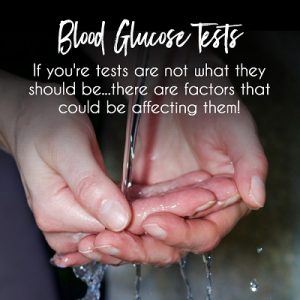Healthy Blood Sugar
 Blood glucose meters are helpful for anyone, not just diabetics. There are many people who are non-diabetic, who experience fluctuations in their blood sugar levels and may be required to perform a blood glucose test on occasion.
Blood glucose meters are helpful for anyone, not just diabetics. There are many people who are non-diabetic, who experience fluctuations in their blood sugar levels and may be required to perform a blood glucose test on occasion.
It is only natural to want your blood glucose levels to be perfect every time you test. However, sometimes there are factors that can give you an incorrect reading. If you feel you are doing everything right in terms of diet, exercise, medicating etc., here are a few possible factors that may be affecting your blood glucose test results.
Timing
The first and most obvious variable is time – not so mush time of day but relative to food eaten, or time since food consumed. Make sure that you test yourself the same time after meals, or that fasting periods are the same each day before testing. Continue reading
 When a person consumes foods high in simple carbohydrates, the body releases the hormone insulin. It doesn’t take long for the body to digest these simple carbs, and the sugar is rapidly released into the bloodstream.
When a person consumes foods high in simple carbohydrates, the body releases the hormone insulin. It doesn’t take long for the body to digest these simple carbs, and the sugar is rapidly released into the bloodstream.
The released insulin triggers multiple processes that make the blood glucose available for use for energy requirements, or to be converted to storage, as fat.
Whatever the end result, the insulin acts to remove sugar from the bloodstream and into the body’s cells. This hormonal action is essential, as excess blood glucose is toxic.
When the diet consists of mostly protein, fats and complex carbs, insulin is released in minute amounts to deal with the steady predictable glucose release. Continue reading






